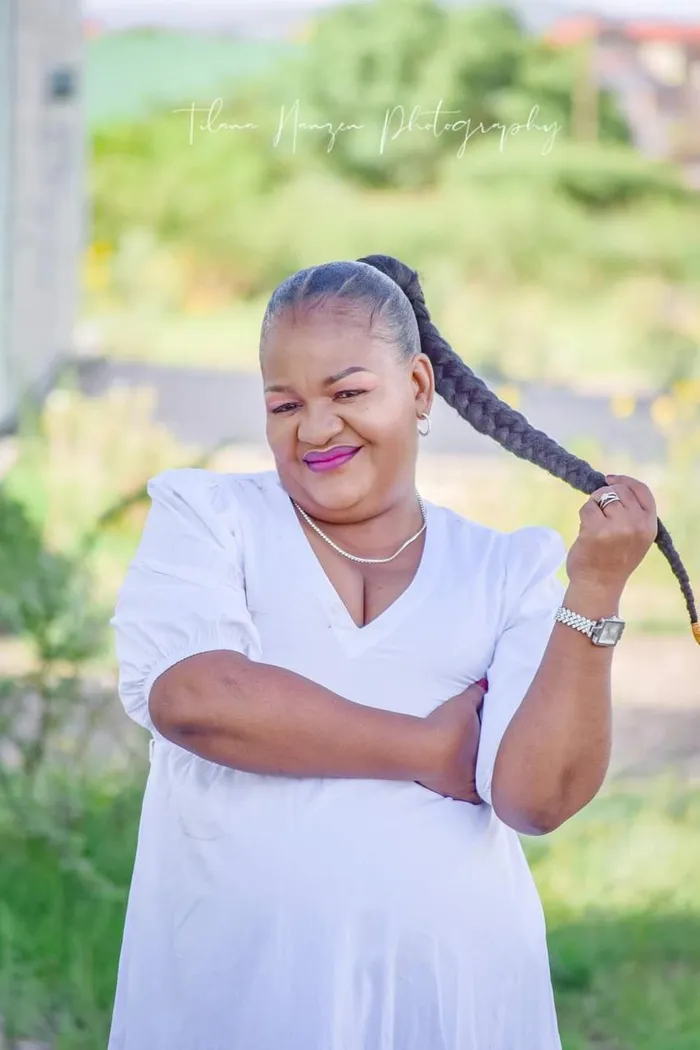From outsider to industry influencer: Mirriam Fonang’s mission to transform mining from Postmasburg

Mirriam Fonang, founder of Outlwile Trading Enterprise, has turned a personal mission into a business that is reshaping how rural communities, particularly women, participate in South Africa’s mining supply chain.
Image: Supplied.
In the heart of the Northern Cape, where mining defines both opportunity and inequality, one woman is rewriting the script.
Mirriam Fonang, founder of Outlwile Trading Enterprise, has turned a personal mission into a business that is reshaping how rural communities, particularly women, participate in South Africa’s mining supply chain.
“I witnessed how mining shaped our community yet so few local, especially women-led, businesses were part of that supply chain,” Fonang told Business Report.
“I didn’t see people like me represented in leadership or ownership. That gap inspired me. I wanted to not only claim a space in the industry but also open doors for others from rural areas, particularly women.”
Building a business with purpose
In 2019, Fonang established Outlwile Trading Enterprise with a bold intention: to prove that local businesses could deliver excellence and impact in a sector long dominated by entrenched players.
“It was the realisation that we can no longer wait for permission to be included,” she said.
“Outlwile wasn’t just about securing contracts, it was about rewriting the narrative of who gets to participate and lead in mining.”
For Fonang, business has never been about survival or mere profit.
“Too often, people from rural backgrounds see business as survival, a hustle, not a legacy. I wanted to change that. I wanted to show that business can be strategic, purposeful, and community-driven. For me, success means uplifting others along the way, creating a ripple effect of transformation,” she added.
The road was far from easy. Fonang started without generational wealth, elite networks, or even access to capital.
“The biggest hurdles were access to funding, to information, to opportunities. Many systems aren’t designed with women like me in mind. I had to build credibility from the ground up, often in spaces where I wasn’t taken seriously. But I leaned into resilience, my community, and purpose,” Fonang said.
Staying rooted in her rural hometown of Postmasburg was a deliberate choice.
“Change must start where it's needed most. I didn’t want to leave Postmasburg behind. I wanted to bring opportunity here,” Fonang further said.
By building Outlwile locally, she has created jobs for youth, developed local suppliers, and proved that industrial transformation can happen outside South Africa’s urban centres.
Leading with empowerment
Empowerment, purpose, and inclusion guide every decision at Outlwile.
“We’re intentional about hiring locally, mentoring women, and creating real access. At Outlwile, we don’t just chase profit, we measure impact by how many doors we’ve opened for others,” Fonang said.
Her own journey has also revealed the unique challenges of being a woman in mining.
“Being taken seriously is still a challenge. In boardrooms and bidding processes, I often had to prove my capability twice over,” she said.
“Access to funding is still skewed against women entrepreneurs. But I kept showing up. I built a track record. I stayed consistent and that’s how I earned respect.”
Now, as a mentor herself, Fonang is determined to make sure other women don’t have to fight their battles alone.
“I always tell them: don’t underestimate your worth. Your background is not your ceiling, it’s your strength. Be bold, stay ready, and take up space unapologetically. Also, mentorship is not just advice, it's about creating real opportunities for the next woman.”
A platform for transformation
“We’ve created jobs for young people, provided mentorship for women, and supported local businesses as subcontractors,” she said.
“We also intentionally contract within the community to keep value circulating locally. Transformation, to me, means visible change in people’s lives and I’m proud to see that happening in Postmasburg.”
She believes rural women are central to South Africa’s economic future.
“Rural women are not just beneficiaries, we are drivers of development. We understand our communities’ needs, we lead households, and we innovate with limited resources. When you empower a rural woman, you shift an entire community forward.”
Powered by partnerships
Fonang is also quick to credit the role of partnerships in her journey.
As a beneficiary of Anglo American Zimele’s enterprise development support, she gained access to mentorship, resources, and networks that helped her scale.
“It was the boost I needed to take the business from vision to real, sustainable impact,” she said.
In an industry where women remain underrepresented, Fonang is breaking barriers while ensuring others can follow. She is proof that transformation doesn’t need to wait for policy shifts, it can start with one determined individual choosing to lead.
“I wanted to show that mining isn’t just for the big players or the urban-based entrepreneurs,” she added.
“It’s for women like me, for rural communities, for anyone willing to build with purpose. And when we build this way, we don’t just create businesses. We create legacies.”
BUSINESS REPORT